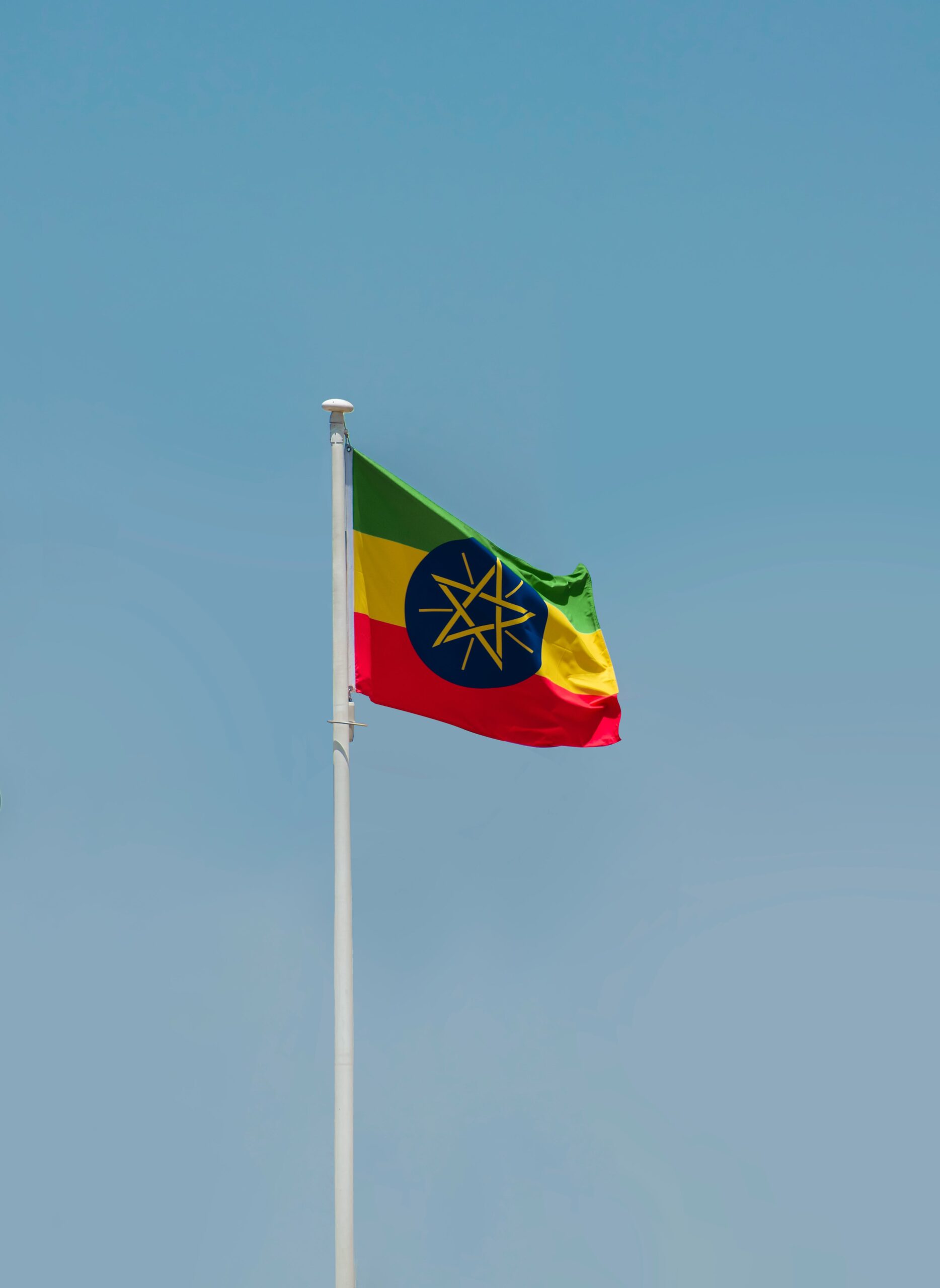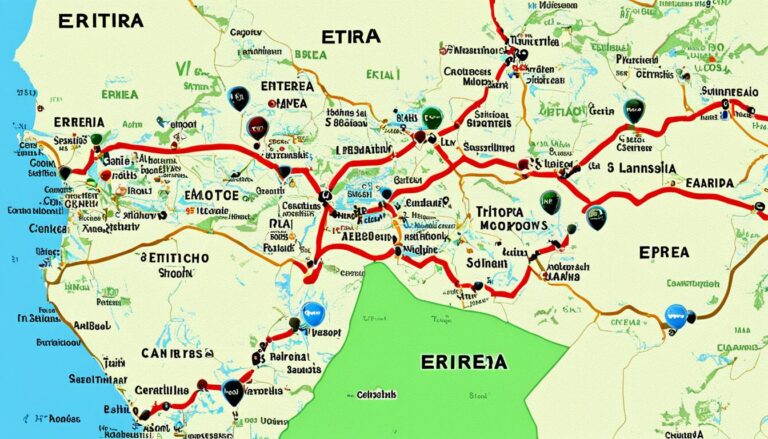Gedeo Zone Ethiopia
Gedeo Zone Ethiopia: An Overview of the Region
Located in the Southern Nations, Nationalities, and Peoples’ Region of Ethiopia, Gedeo Zone is a diverse and culturally rich area known for its unique traditions, landscapes, and economic activities. Home to the Gedeo people, the zone is characterized by lush greenery, rolling hills, and welcoming communities.
The Gedeo Zone covers an area of approximately 1,256 square kilometers and is divided into several woredas or districts, including Dila, Bule, and Yirgacheffe. The region’s capital is Dila, a bustling town that serves as a hub for trade, commerce, and transportation within the zone.
One of the defining features of Gedeo Zone is its vibrant cultural heritage. The Gedeo people have a rich history of traditional music, dance, and art, which are often showcased during local festivals and celebrations. The region is also known for its unique cuisine, with dishes such as kitfo, injera, and local varieties of coffee delighting visitors and residents alike.
Moreover, Gedeo Zone is renowned for its coffee production, with the area being home to some of the finest coffee beans in the world. The fertile soil and favorable climate of the region create ideal conditions for growing coffee, making it a significant source of income for many Gedeo farmers.
As a popular destination for eco-tourism, Gedeo Zone attracts visitors from around the globe who come to explore its stunning landscapes and biodiversity. From the verdant forests of the Gedeo Highlands to the picturesque Gudumale Natural Forest, the region offers a wealth of natural wonders for tourists to discover.
In recent years, Gedeo Zone has faced challenges such as land scarcity, environmental degradation, and political unrest. However, local authorities and community members have been working together on various development initiatives to address these issues and improve the overall well-being of the region’s residents.
Gedeo Zone Ethiopia is a diverse and vibrant region with a rich cultural heritage, thriving economy, and breathtaking natural beauty. Whether you’re interested in exploring traditional customs, sampling local delicacies, or immersing yourself in the stunning landscapes, Gedeo Zone has something to offer every visitor.
\
Exploring Cultural Diversity in Gedeo Zone\
Located in Southern Ethiopia, Gedeo Zone is a region known for its rich cultural tapestry. The zone is home to diverse ethnic groups, with the Gedeo people being the predominant group in the area. Their unique customs, traditions, and language contribute to the cultural vibrancy of the region.
The Gedeo people are known for their traditional practices, including the Gadaa system, a social structure that governs political, social, and economic activities within the community. This system plays a crucial role in decision-making processes and conflict resolution among the Gedeo people.
In addition to the Gedeo community, the zone is also home to other ethnic groups, such as the Oromo and Amhara. This cultural diversity adds a layer of complexity to the region, as different traditions and practices coexist harmoniously, creating a melting pot of cultural experiences.
One of the most striking aspects of the cultural diversity in Gedeo Zone is the presence of various religious beliefs. While Christianity is the predominant religion in the area, traditional beliefs and practices also hold significant influence, particularly in rural communities. This interplay of different faiths contributes to the overall cultural landscape of the zone.
Cultural events and festivals are a significant part of life in Gedeo Zone. These celebrations showcase the diverse traditions and customs of the different ethnic groups in the region. From religious ceremonies to harvest festivals, these events offer a glimpse into the rich cultural heritage of the Gedeo people and other communities in the zone.
The cultural diversity in Gedeo Zone is a testament to the region’s history and heritage. As various ethnic groups coexist and interact, they create a dynamic cultural mosaic that continues to thrive in this vibrant corner of Ethiopia.
Economic Activities and Opportunities in Gedeo Zone
Located in the Southern Nations, Nationalities, and Peoples’ Region of Ethiopia, Gedeo Zone is a region known for its diverse economic activities and abundant opportunities for growth and development. The zone is primarily inhabited by the Gedeo people, who are known for their agricultural practices and entrepreneurial spirit.
Agriculture is the backbone of the economy in Gedeo Zone, with coffee being the most significant cash crop grown in the region. The area’s fertile soil and suitable climate make it ideal for coffee cultivation, leading to the production of high-quality Arabica coffee beans. Coffee farming not only sustains the livelihoods of many locals but also serves as a major source of income through exports to international markets.
In addition to coffee, Gedeo Zone is also known for the production of other crops such as fruits, vegetables, grains, and spices. Farmers in the region practice mixed farming, utilizing traditional and modern farming techniques to maximize productivity. This diversity in agricultural activities ensures food security for the local population and contributes to the overall economic stability of the zone.
Apart from agriculture, Gedeo Zone offers various opportunities for investment and business development. The region’s close proximity to the capital city, Addis Ababa, and its well-established infrastructure make it an attractive destination for investors looking to venture into sectors such as manufacturing, tourism, and trade. Small and medium enterprises (SMEs) play a vital role in the economic landscape of Gedeo Zone, contributing to job creation and income generation.
The government of Ethiopia, in collaboration with local authorities, has been implementing initiatives to promote economic growth and alleviate poverty in Gedeo Zone. These initiatives include providing financial support to farmers, improving access to markets, and facilitating skills training programs for the youth. Furthermore, the establishment of industrial zones and agro-processing plants has helped in diversifying the economy and creating employment opportunities for the residents.
Gedeo Zone in Ethiopia presents a promising environment for economic activities and investment. With a strong focus on agriculture, support for SMEs, and government-led development initiatives, the region is poised for sustainable growth and prosperity. By harnessing its natural resources and leveraging its human capital, Gedeo Zone is on the path towards becoming a hub of economic development in Ethiopia.
Tourist Attractions and Landscapes in Gedeo Zone
The Gedeo Zone in Ethiopia boasts a wide array of tourist attractions and breathtaking landscapes that cater to nature lovers and adventure seekers alike. Nestled in the Southern Nations, Nationalities, and People’s Region, Gedeo Zone is renowned for its natural beauty and cultural heritage, making it a hidden gem in Ethiopia waiting to be explored.
One of the must-visit attractions in Gedeo Zone is the picturesque Wenago Mountain. Hiking enthusiasts will find themselves captivated by the stunning scenery and lush greenery surrounding the mountain trails. The cooler climate at higher altitudes provides a refreshing escape from the hustle and bustle of city life, offering visitors a chance to reconnect with nature.
For those interested in cultural experiences, the Gedeo people have a rich heritage waiting to be discovered. The Gedeo Museum in Dilla showcases traditional artifacts, craftsmanship, and exhibits that offer insight into the local way of life. Visitors can immerse themselves in the vibrant traditions and customs of the Gedeo community, gaining a deeper understanding of the region’s cultural diversity.
Moreover, Gedeo Zone is home to the stunning Lake Choma, a tranquil oasis that provides a serene setting for relaxation and birdwatching. The surrounding area is teeming with bird species, making it a paradise for bird enthusiasts and nature photographers. Visitors can take leisurely boat rides on the lake or enjoy a picnic by the shore while soaking in the peaceful ambiance.
Additionally, the Gedeo Zone is dotted with charming coffee plantations where visitors can learn about the coffee production process firsthand. Coffee enthusiasts will appreciate the opportunity to taste freshly brewed Gedeo coffee, known for its distinct flavor profile and high quality. The coffee plantations offer guided tours that showcase the traditional methods of coffee cultivation, from harvesting to roasting.
Gedeo Zone in Ethiopia is a destination that combines natural beauty, cultural heritage, and immersive experiences for travelers seeking off-the-beaten-path adventures. Whether exploring the scenic landscapes, delving into the local culture, or savoring the renowned Gedeo coffee, visitors to Gedeo Zone are sure to be enchanted by all that this hidden gem has to offer.
Challenges and Development Initiatives in Gedeo Zone, Ethiopia
Gedeo Zone in Ethiopia faces various challenges that hinder its development, but ongoing initiatives seek to address these issues and propel the region forward. One of the key challenges in the zone is the prevalence of food insecurity due to factors such as unpredictable weather patterns, soil degradation, and limited access to modern agricultural practices. This issue is being tackled through initiatives that promote sustainable farming techniques, provide training to farmers, and improve access to markets for agricultural products.
Another significant challenge in Gedeo Zone is the lack of access to quality healthcare services, particularly in rural areas. Development initiatives are focusing on building and upgrading healthcare facilities, training healthcare workers, and increasing awareness about healthcare practices to improve the overall well-being of the population. These efforts aim to reduce the prevalence of diseases and enhance the quality of life for residents in the zone.
Infrastructure development is another area that requires attention in Gedeo Zone. Poor road networks, inadequate water and sanitation systems, and limited access to electricity are some of the infrastructure challenges faced by the region. Development initiatives are working towards improving infrastructure to connect remote areas, provide clean water sources, and increase access to reliable electricity, which is crucial for driving economic growth and improving living standards.
Furthermore, Gedeo Zone is grappling with environmental issues such as deforestation, soil erosion, and waste management. Initiatives promoting reforestation, sustainable land management practices, and waste recycling are being implemented to combat these challenges and preserve the natural resources of the region for future generations.
Despite these challenges, Gedeo Zone is witnessing positive developments through various initiatives aimed at addressing the pressing issues and fostering sustainable growth. With a concerted effort from government bodies, non-profit organizations, and local communities, the zone is gradually overcoming obstacles and moving towards a brighter and more prosperous future.
Conclusion
The Gedeo Zone in Ethiopia is a region rich in cultural diversity, natural beauty, and economic potential. Nestled in the southern part of Ethiopia, the Gedeo Zone offers a unique blend of traditions, languages, and customs that reflect the region’s vibrant history and heritage. From lush landscapes to bustling marketplaces, Gedeo Zone is a place where visitors can immerse themselves in the rich tapestry of Ethiopian culture.
One of the defining features of the Gedeo Zone is its cultural diversity. The region is home to a mix of ethnic groups, including the Gedeo people, who have their own language, traditions, and practices. This diversity is celebrated through colorful festivals, traditional dances, and intricate handicrafts that showcase the unique identity of each community. Visitors to the Gedeo Zone have the opportunity to experience this cultural richness firsthand, gaining insight into the everyday lives of the people who call this region home.
In addition to its cultural wealth, the Gedeo Zone is also a hub of economic activity. The region is known for its fertile soil, which supports a thriving agriculture sector. Coffee farming is a particularly important industry in Gedeo Zone, with the region’s beans renowned for their quality and flavor. In recent years, efforts have been made to diversify the local economy, with investments in sectors such as tourism, manufacturing, and services creating new opportunities for growth and development.
When it comes to tourism, the Gedeo Zone has much to offer visitors in terms of natural beauty and cultural attractions. From the stunning landscapes of the Guji highlands to the picturesque shores of Lake Abaya, the region is a paradise for nature lovers and adventure seekers. Visitors can explore ancient archeological sites, lush forests, and vibrant markets, immersing themselves in the sights, sounds, and flavors of this unique corner of Ethiopia.
Despite its many attractions, the Gedeo Zone also faces challenges that threaten its development and prosperity. Issues such as environmental degradation, infrastructure deficits, and poverty continue to impact the lives of residents in the region. However, there are ongoing initiatives aimed at addressing these challenges and fostering sustainable growth in the Gedeo Zone. From community-led conservation projects to government investments in education and healthcare, efforts are underway to build a brighter future for the people of this diverse and dynamic region.
The Gedeo Zone in Ethiopia is a region brimming with potential and promise. Its cultural richness, economic opportunities, and natural beauty make it a destination worth exploring for travelers and investors alike. By preserving its heritage, addressing its challenges, and embracing innovation, the Gedeo Zone can build a more prosperous and sustainable future for generations to come.





